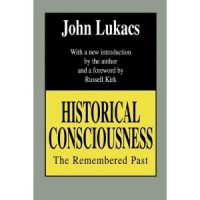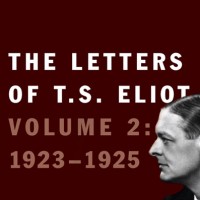Virtue and the Promise of Conservatism: the Legacy of Burke and Tocqueville, by Bruce Frohnen
Conservatism lives. It continues to exercise its power over bright young minds. It also shows us a way of life, how to live. For these assertions there could be no better evidence than Bruce Frohnen’s Virtue and the Promise of Conservatism. Conceived as a doctoral dissertation at Cornell University and midwifed by a university press, this book holds a promise of its own to find a long life on the short shelf of indispensable landmark studies of modern conservative thought. Frohnen’s fresh articulation of conservatism, telling old verities to a fin de siècle audience, does for his generation something akin to what Russell Kirk in The Conservative Mind did for his.
This phenomenon is all the more remarkable in that there is scarcely a more outré word in today’s academy than conservative. It is used almost uniformly as a term of opprobrium to castigate anything that offends against our day’s regnant intellectual orthodoxy. (Latest flash: Jeffrey Dahmer, Milwaukee cannibal, represents conservative backlash against subversions of patriarchal family.) Frohnen gives our orthodox intelligentsia something really to hate with a whole heart; this is the real thing. One can scan university-press catalogs a long time without finding a single book having the rhetoric of this one. (And it is, in passing, a wonder of wonders that a university press has allowed into print a book routinely using the generic masculine; perhaps someone there knows what our Politically Correct do not: that sometimes there is no “gender-inclusive” translation which keeps the nuances of meaning exact.)
Here is a quick sample of Frohnen’s unfashionable rhetoric. In opposition to the academy’s studied avoidance of anything religious, Frohnen avers, “To act rightly, to do as God wills in one’s own life, is to act virtuously,” and for this “[o]ne needs the guidance of revelation.” In his view, “The French Revolution, like its Marxian progeny in Russia and elsewhere, was essentially an attempt to substitute man’s will for God’s.” One who embraces the sandal of conservatism will not shrink from the scandal of the cross. But how alien will this line of thought be to my friends on the so-called Christian Left, who think that their faith requires cozying up to socialism and who look almost exclusively to the right to locate their enemies. And how this next sentence will rankle our classracegender intellectuals: “Nature dictates a hierarchical structure for society.” Why, Frohnen even resorts to the ancient imagery of the Great Chain of Being. But this move comes readily to one who thinks that, “rather than trusting independent wisdom, we should trust the wisdom of the ages.”
Read the complete article in The University Bookman
History Resurgent, by Brainard Cheney.
“You couldn’t be more right,” is the warm affirmation of an amiable friend of mine that I would like to apply to this book. Dr. Lukacs here has achieved an informed, discriminating, and balanced assessment of our waggambraus times and a recognition of a potential for our salvation. Too, he has provided responsible and penetrating criticism of the present “Interregnum.” And he has presented or “re-presented” sound ground for his perspective.
Dr. Lukacs examines the passing of the Modern Age, with its disastrous scientific worldview, to find that it leaves behind “monstrous institutions of scientific technology . . . governed by puny men,” and our grim realization that “for the first time the end of the world is in sight.”
To be sure, he is not the first man to sight the end of the world, nor to sound an alarm. His work is rather a diagnosis of causes and a consideration of the terms of avoidance. The Modern Age, our Pandora’s box, produced two “achievements of the modern European mind”: the scientific thought and the historic thought. And it is in recent modification of scientific “Absolutism” by the historical form of thought that hope now resides. To put it more exactly: “This movement from the physics of historical force to the history of physics, marks, in itself, the developing historicity of our consciousness.” Mr. Lukacs finds that “the elements of a potential harmony between historical and scientific thought are already here. It is only because of the extraordinary intellectual confusion of our times that the existence of this harmony has gone either unrecognized or that it has been rather willfully obscured by certain vested interests of the mind.”
Read the complete article in The University Bookman
Eliot Through His Letters, by Martin Lockerd.
Since the first volume of Eliot’s letters (1898–1922) appeared in 1988, scholars and enthusiasts waited impatiently for the Eliot estate to release a second volume. Though a British edition appeared in 2009, American readers were forced to wait still longer for the U.S. edition, which finally appeared in August of 2011. One benefit of the delayed arrival of the U.S. edition is that the letters themselves have already been reviewed by several prominent publications. Of course, this is a benefit chiefly in so far as it provides the opportunity for a much-needed corrective.
Anthony Julius’s piece for The Telegraph demonstrates the characteristic myopia of the reviews that sprang up in 2009. He finds little to like about the “distasteful” task of reading Eliot’s letters: “They tell us about the author, not about his writing. They are not an aid to understanding, certainly.” Though nearly every major critical work concerning Eliot’s verse makes useful reference to his correspondences, Julius finds them merely tedious. While this puts him in the company of those reviewers who regularly employ adjectives such as “painful” and “boring” when describing the reading process, it does him little credit. What is truly painful is the fact that many reviews of the letters fail to substantially address any but those letters directly quoted in the editors’ preface. The preface does give a well-constructed and succinct overview of the book’s contents, but many early reviewers cling to the overview and neglect the collection itself.
Julius does make one foray outside of the preface in order to bash Eliot as an anti-Semite, but he is so intent on grinding this worn-down axe that he overlooks the moments of true insight that leap up like a trout in the onrushing stream of the poet’s correspondence. The collection is admittedly awash with business mail that can be overwhelming. It is also, however, filled with truly poignant, interesting, and even funny moments that make the letters well worth reading. The exchange between Eliot and the writer/critic John Middleton Murry stands out as the most moving and emotional. Following the lead of the preface, many reviewers call attention to Eliot’s deeply confessional letters to Murry, which are filled with dark lines such as: “I have deliberately killed my senses—I have deliberately died—in order to go on with the outward form of living.” Eliot’s desperation grows as his wife’s mental and physical health languishes and deteriorates, and his fall into depression and despair evokes true pathos with seemingly little hope of catharsis.
Complete article in The University Bookman

